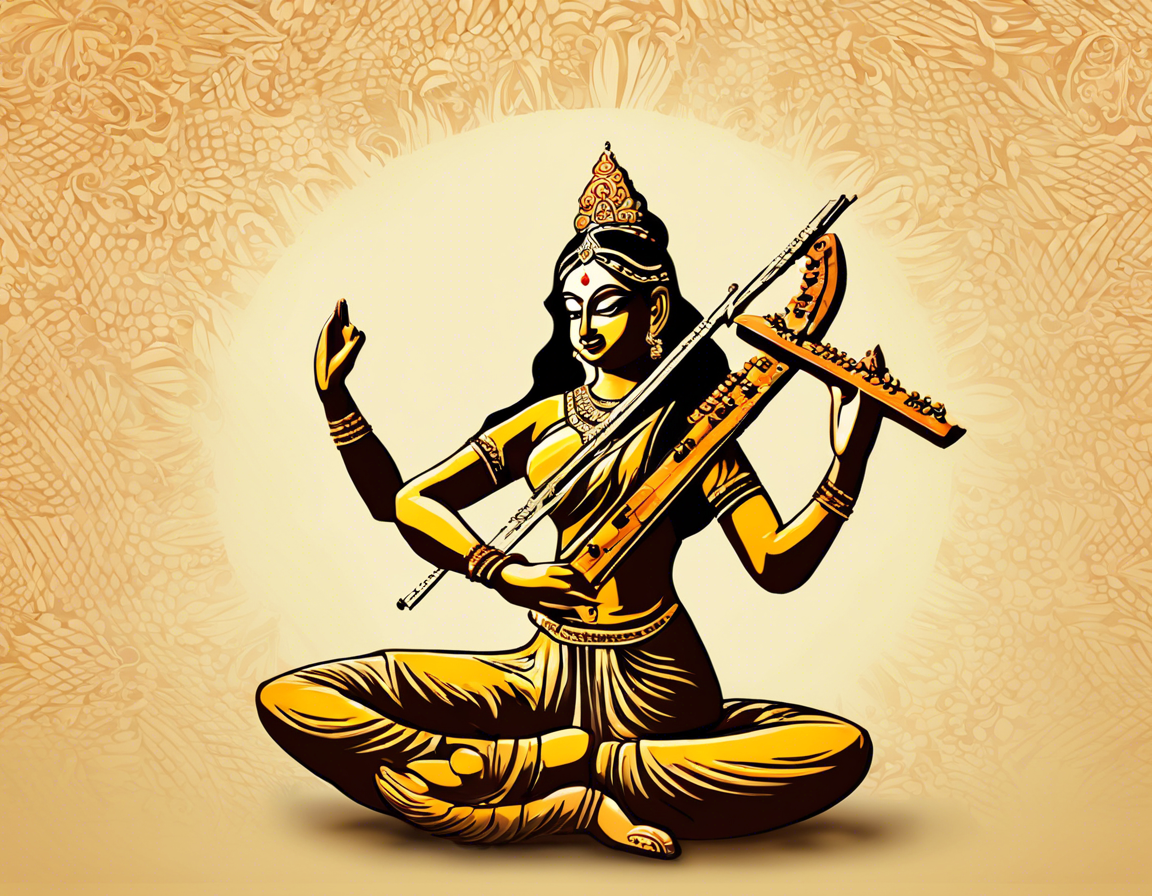Basant Panchami, also known as Vasant Panchami, is a significant Hindu festival that marks the arrival of the spring season. This auspicious day is dedicated to Goddess Saraswati, the deity of knowledge, wisdom, art, and music. Celebrated on the fifth day of the Hindu month of Magha, Basant Panchami holds immense cultural and religious importance in India and Nepal. People across these countries celebrate this festival with great fervor and enthusiasm, offering prayers to seek the blessings of Goddess Saraswati for wisdom and success in academic pursuits.
History and Significance of Basant Panchami
Basant Panchami, which falls typically in late January or early February, is associated with various mythological and historical legends. According to Hindu mythology, this day marks the birth anniversary of Goddess Saraswati, who symbolizes the power of knowledge, creativity, and learning. The festival also signifies the onset of spring, characterized by blooming flowers, warmer weather, and the renewal of nature.
Celebrations and Rituals
On Basant Panchami, devotees, especially students, teachers, and artists, worship Goddess Saraswati with great devotion. The color yellow holds special significance during this festival as it represents spring, prosperity, and optimism. People dress in yellow attire, offer yellow flowers, and consume yellow sweets as a homage to the vibrancy of the season.
Saraswati Puja
One of the main rituals on Basant Panchami is the Saraswati Puja, where students place their books and musical instruments in front of the goddess and seek her blessings for success in academics and creative endeavors. The puja usually involves establishing a Saraswati idol or picture, performing aarti (ritual of worship with lamps), chanting mantras, and offering prasad (sacred food) to the deity.
Basant Panchami Wishes and Greetings
On this auspicious occasion, people exchange heartfelt wishes and greetings with their loved ones to spread joy and positivity. Here are some Basant Panchami wishes and messages that you can share:
- May Goddess Saraswati bless you with knowledge and wisdom. Happy Basant Panchami!
- Wishing you a colorful and joyous Basant Panchami filled with music, art, and positivity.
- On this auspicious day, may your life be filled with the light of knowledge and the colors of spring. Happy Basant Panchami!
- May the blessings of Goddess Saraswati empower you to achieve success in all your endeavors. Happy Vasant Panchami!
- As you celebrate the onset of spring, may your life be filled with new beginnings and prosperity. Happy Basant Panchami!
FAQs (Frequently Asked Questions)
-
What is the significance of wearing yellow on Basant Panchami?
Yellow is considered auspicious on Basant Panchami as it symbolizes the vibrancy of spring, new beginnings, and knowledge. It is believed to attract positivity and prosperity. -
How is Basant Panchami celebrated in different parts of India?
In various states of India, Basant Panchami is celebrated with unique rituals and customs. For example, in Punjab, it is marked with kite flying competitions, while in West Bengal, Saraswati Puja is a grand affair in schools and households. -
Can anyone perform the Saraswati Puja on Basant Panchami?
Yes, Saraswati Puja can be performed by anyone seeking blessings for knowledge, wisdom, and academic success. It is particularly popular among students, teachers, and artists. -
Are there any specific traditional dishes prepared during Basant Panchami?
Sweet dishes like saffron rice, kesari (saffron) halwa, sweet boondi, and yellow-colored sweets are commonly prepared as offerings and consumed during Basant Panchami celebrations. -
Why is Basant Panchami considered an auspicious day for initiating education or learning new skills?
Since Basant Panchami is associated with Goddess Saraswati, the deity of knowledge and learning, it is considered an auspicious day to start educational endeavors, learn new skills, or seek blessings for academic success. -
Is there a specific mantra that can be chanted on Basant Panchami to seek the blessings of Goddess Saraswati?
The Saraswati Vandana mantra is often chanted on Basant Panchami to invoke the blessings of Goddess Saraswati. One of the popular mantras is “Yaa Kundendu Tushaara Haara Dhavalaa, Yaa Shubhra Vastraavritaa. Yaa Veena Varadanda Manditakara, Yaa Shweta Padmaasanaa. Yaa Brahmaachyuta Shankara Prabhritibhir Devai-Sadaa Vanditaa, Saa Maam Paatu Saraswatee Bhagavatee Nihshesha Jaadyaapahaa.” -
Is Basant Panchami only celebrated by Hindus?
While Basant Panchami is primarily a Hindu festival dedicated to Goddess Saraswati, people from various religions and cultural backgrounds also participate in the celebrations to embrace the spirit of spring and knowledge. -
What is the traditional attire worn during Basant Panchami celebrations?
Traditional Indian attire like saris, salwar kameez, or kurta-pajamas in shades of yellow are commonly worn during Basant Panchami to symbolize the festive spirit and the arrival of spring. -
Are there any special folk songs or dances performed during Basant Panchami?
In some regions, especially in North India, people perform traditional folk dances like the Basant raga or Basant geet and sing spring-themed songs to celebrate the festival with music and dance. -
How long does the Basant Panchami festival last?
Basant Panchami is typically a one-day festival that falls on the fifth day of the Hindu month of Magha. However, the preparations, including cleaning homes, buying new clothes, and conducting puja ceremonies, may start a few days in advance.
